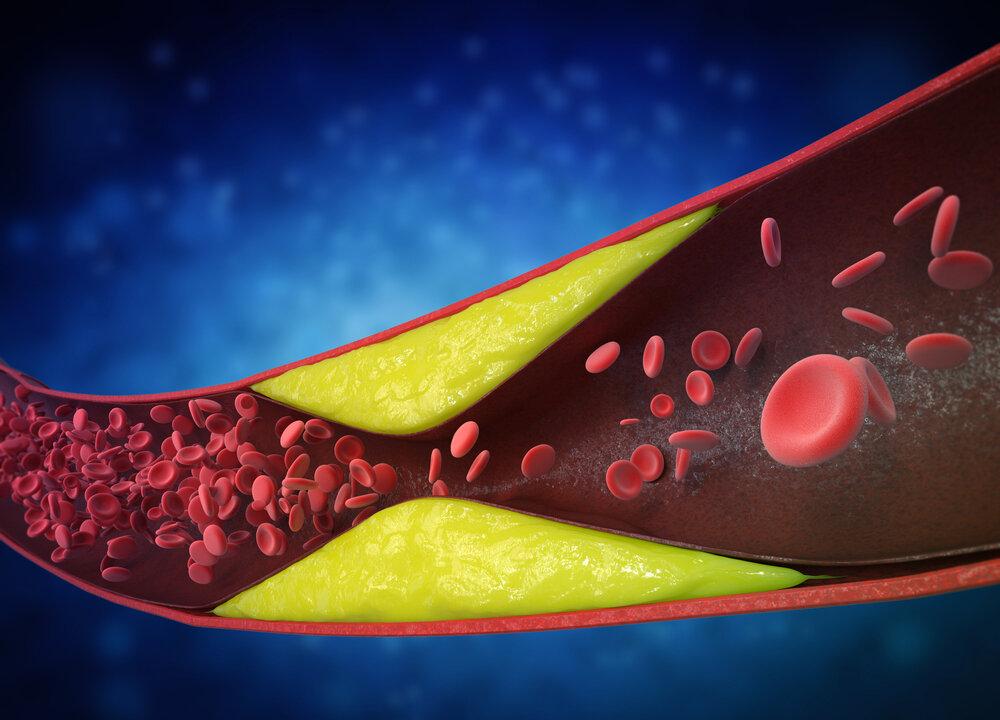Successful people often have many positive traits that drive their ambition, but they also may be more prone to depression and anxiety due to hypomethylation.
It is not uncommon to find many highly accomplished people who work so hard that they often neglect their physical and mental health.
A common belief is that this type of person strives for perfection because they fear failure. The desire to do things better is a fabulous psychological and personality trait, but in chasing such a thing, you may end up with only exhaustion and dissatisfaction. Also behind this striving for perfection is often a sensitivity to how one is perceived by others, which can be a source of tremendous psychological pressure.
Under such mental stress, the levels of adrenocorticotropic hormone (ACTH) will go up. Persistent excessive secretion of this hormone can cause a series of problems, such as high blood pressure, hyperlipidemia, hyperglycemia, chronic inflammation, and increased visceral fat.
Story continues below advertisement
A Yale University
study found that among normal-weight women, those who were susceptible to stress bore more belly fat. They felt more stressed, often had negative emotions, and secreted more cortisol when dealing with stressful tasks, which causes fat to build up around their internal organs.
These people usually start with a naturally slim physique. It is only because they are under such long-term mental stress and perhaps under the influence of an unhealthy diet that their body shape changes over time. They are also often compulsive exercisers. To maintain their figure, they may be very picky about what they eat and also exercise excessively.
Corporate Executive Exercises Daily but Still Has Poor Health
I treated a 42-year-old corporate executive. He worked more than 60 hours a week and suffered from anxiety and insomnia almost every day. Although he would go to the gym at the expense of sleep, he still had various health problems.There is a biochemical reason behind his condition:
hypomethylation. Methylation is a biochemical process involved in the body’s DNA repair, detoxification, immune function, and neurotransmitter production. If there is a problem with methylation, it can affect the brain, nerves, and psychology.
With underperformed methylation, the brain lacks dopamine and serotonin, two important neurotransmitters that regulate mood and bring psychological satisfaction. The lack of these two hormones results in a feeling of loneliness, depression, and lack of satisfaction in life, work, and study.
Story continues below advertisement
After restoring his biochemical balance through psychotherapy, regulating his nutrients, and correcting his behavior and way of thinking, his health has dramatically improved, and his work efficiency has significantly increased.
Such patients are not uncommon; we used to call them workaholics. They always seem to have unfinished tasks on hand and can hardly stop. Under such high-stress situations, the body will undoubtedly experience fatigue, reduced immunity, and gastrointestinal problems.
Symptoms of Hypomethylation
Studies have found that people with low levels of methylation in some genes related to the hypothalamic-pituitary-adrenal (HPA) axis are more likely to suffer severe depression.
Patients with hypomethylation are particularly prone to depression and even suicidal intent. Not only are they very stubborn, but they also have obsessive minds and are prone to addictive behaviors, such as gambling, sexual behavior, chemical dependence, drug abuse, smoking, drinking, etc.
Generally, this is not due to any moral issues with these people. It is more because they are trying to use this behavior to make up for the inner emptiness, low mood, and lack of satisfaction in life, work, and school caused by their inadequacy in serotonin and dopamine.
Story continues below advertisement
Hypomethylation is quite common among professionals, including doctors, lawyers, scientists, entrepreneurs, and politicians. Biochemical characteristics determine the personality traits of this type of person, such as hard-working, high risk-taking, keen on competition, overly serious in many things, and particularly persistent or stubborn. These are all contributors to their success, but at the same time, the health risk is also very high. These people are among the top few in the psychiatric suicide rankings.
Improve Hypomethylation
Both congenital and acquired issues related to methylated gene expression can often be addressed through biochemical adjustments tailored to the individual’s needs. While medication may be used, regulating diet and nutrient intake is more important.It is recommended that more methionine and some important coenzymes be consumed, as well as vitamins B6 and B12 and folic acid. Some
studies have found that low folic acid levels are associated with reduced overall methylation levels and that supplementing folic acid can regulate methylation and offset methylation abnormalities caused by toxic substances or malnutrition. Other
studies have found that people who consume more folic acid and vitamins B6 and B12 have a lower risk of metabolic abnormalities, another indication of the positive involvement of B vitamins in methylation.
However, for people who are deficient in serotonin and dopamine, particular care is needed when using folic acid, as too much of it could also affect brain function. Some
studies have also found that older adults with high folate but low vitamin B12 levels have poorer cognitive abilities. Therefore, it is necessary to consult a professional to analyze the individual cases to arrive at a bespoke treatment plan.
Nutrition and Spiritual Health Are Equally Important
For people with mild mental and behavioral disorders, green vegetables, nuts, and deep-sea fish are especially important to maintain mental health. At the same time, zinc, magnesium, vitamin D, etc., should be supplemented. These nutrients can subdue unstable moods, improve fatigue, and prevent deterioration in immunity.
Research has shown that people who consume more raw fruits and vegetables as opposed to processed are less likely to have symptoms of depression. The top 10 fresh vegetables and fruits that are good for mental health are as follows:
- Carrots
- Bananas
- Apples
- Dark green vegetables such as spinach
- Grapefruit
- Lettuce
- Citrus fruits
- Berries
- Cucumbers
- Kiwis
In addition to biochemical and nutritional adjustments, we also need a robust belief system to help us face stress, conflicts, and competing interests while maintaining inner peace. People who lack faith and spiritual support may overly pursue success at work, neglecting their spiritual growth. If you are one of these people, you may find that the more successful you are, the more confused and anxious you feel, ultimately leading to a sense of life being meaningless.
If you find that you have some perfectionistic tendencies, remember to pay more attention to your diet, nutrition, and lifestyle, as well as your spiritual pursuits. Only by maintaining a healthy balance of physical and mental health can long-term success be achieved.
Views expressed in this article are the opinions of the author and do not necessarily reflect the views of The Epoch Times. Epoch Health welcomes professional discussion and friendly debate. To submit an opinion piece, please follow these guidelines and submit through our form here. 






